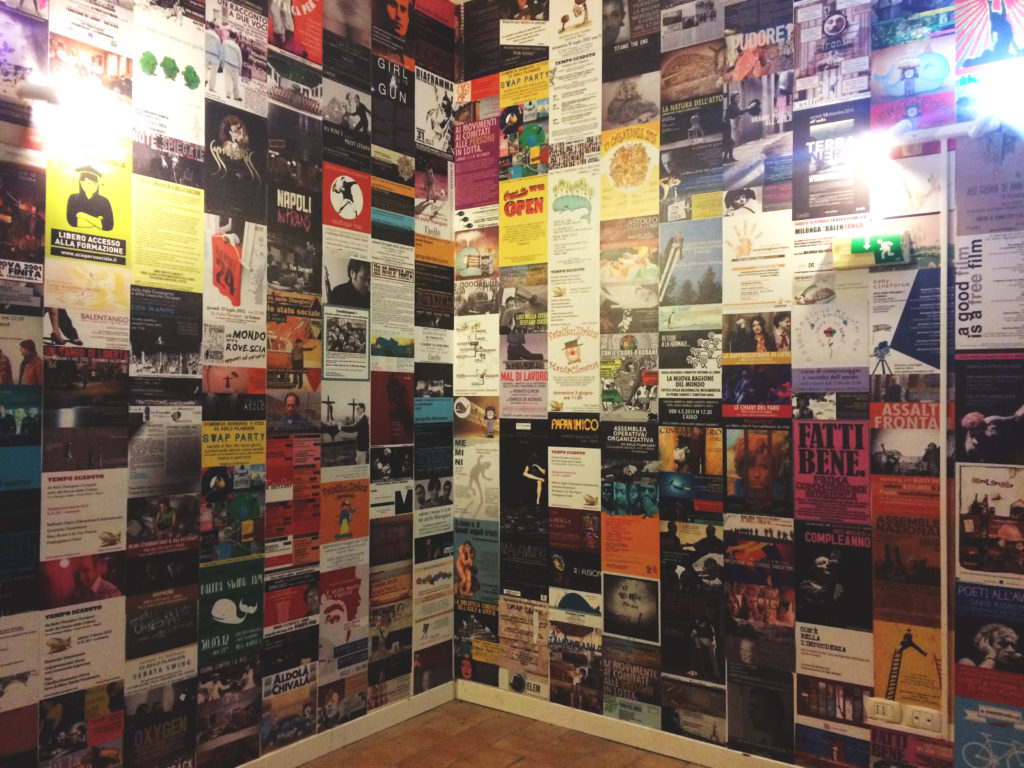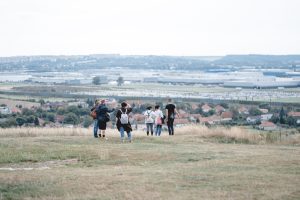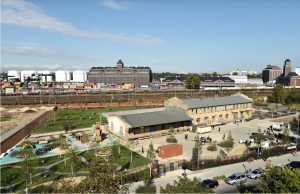The Asilo (The shelter) is a centre for independent production and sharing of art, managed by an informal open community. The building is owned by the City, but its management is devolved to the artist community through the innovative model of the "Usi Civici", creating an experience of direct democracy and opening the way for the institutional development of urban commons in Naples.
The Asilo is located in Vico Giuseppe Maffei, 4, Naples. It has been run in an experimental self-management form by a group of activists, artists and citizens since 2011, but from 2014 the community gained stable rights over the ex-monastery in the historic centre of Naples.
The project started as a protest to the closure for economic reasons of what was supposed to be a public art centre in an ex-monastery in the historical city centre. The community of artists, creative people and activists that occupied the building installed in it a democratic and open management to promote public art, music, theatre, literature and cinema. The centre activity expanded rapidly, attracting more artists and more audience, proving at the same time to be a sustainable experiment of direct democracy. In 2014 the city eventually acknowledged the benefits and the positive effects that such management was providing to the city, and decided to legally recognise the activity of the citizen communities involved, granting them the right of use of the buildings, starting a new paradigm of low-cost and citizen-led urban management.
The Asilo experience laid the groundwork for a process that the city administration undertook, creating a framework for the identification, management and protection of seven more “urban commons” spread in the city through the innovative model of the “Usi Civici”. A commons occurs when the access, use and management of a resource is shared by member of a certain community, that carry out a process of commoning. The concept behind Naples urban commons is: if such buildings are “public property” then it means that citizens have the right of use them and deciding about their future, if the city council cannot provide better arrangements or is not able to avoid their closure because of economic difficulties. The urban space is used a shared resource: at the Asilo artists are given space to work and do rehearsals for free, but in turn they offer to the city free access to their art products and any educational/cultural experiences that is taking place in the centre.
Link & Download
INFO & LINKS
https://it-it.facebook.com/lasilo/
Read more on Usi Civici in the study about regeneration of commons through self-construction. (In Italian)



